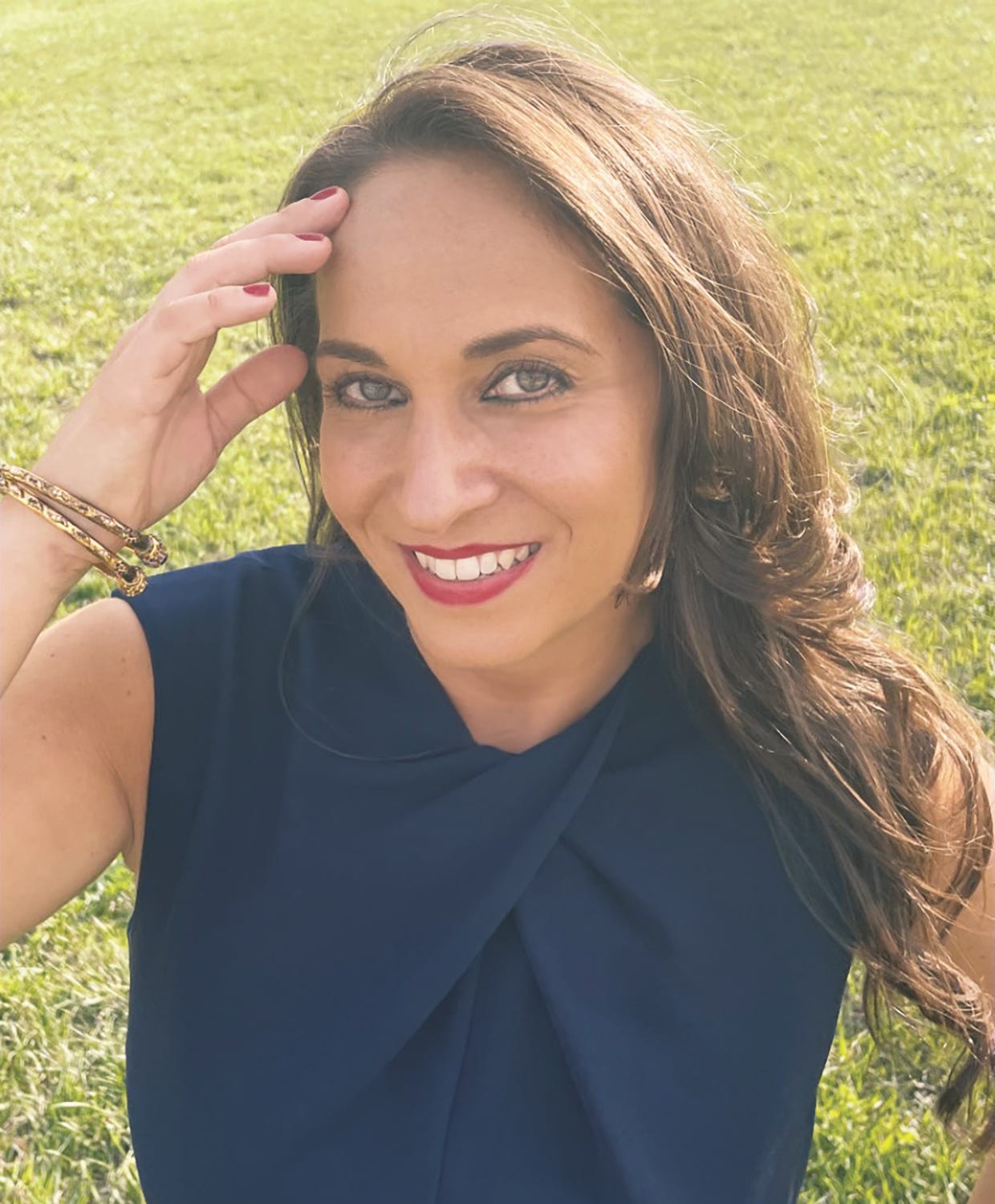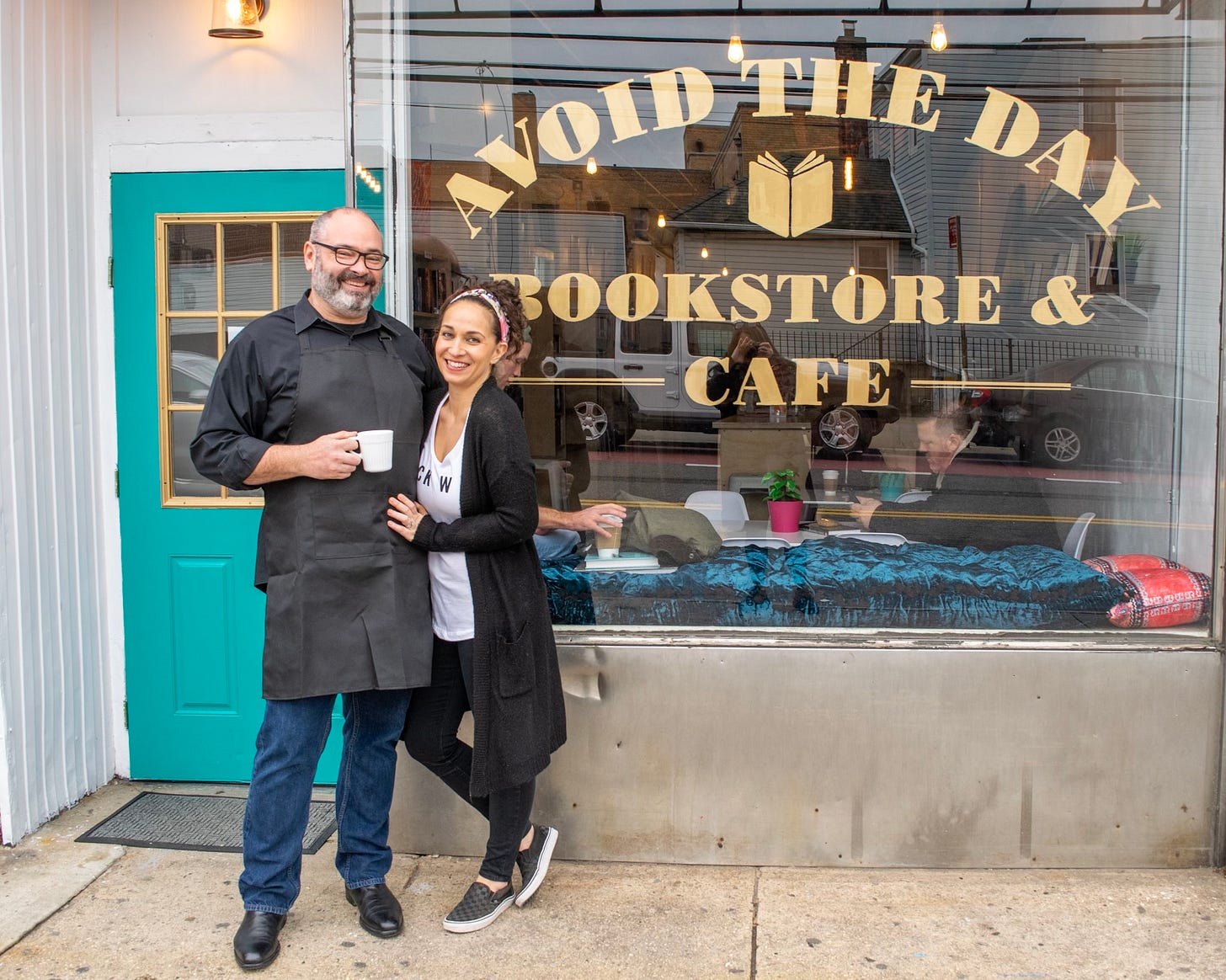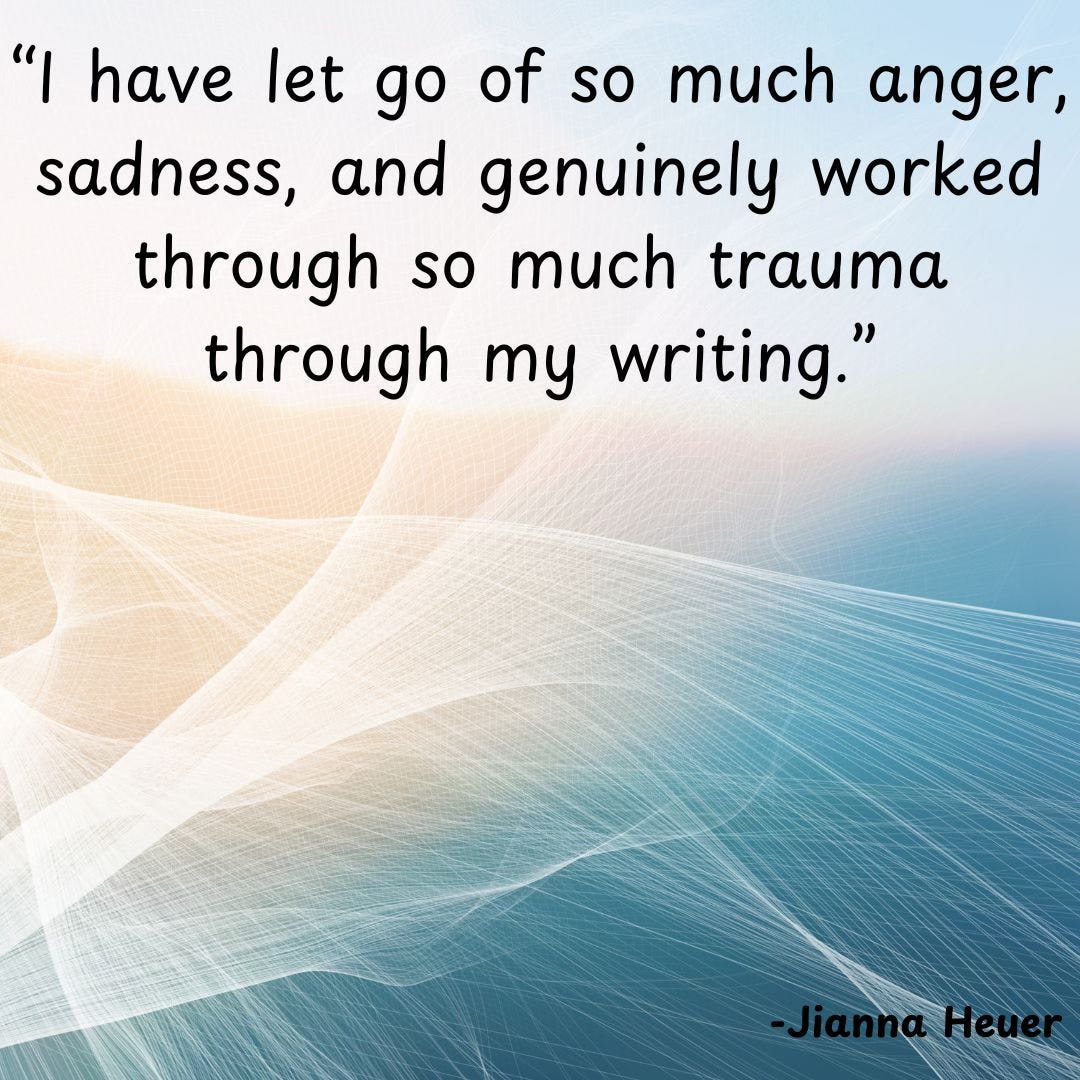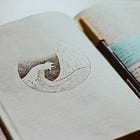Art Meets Psychology Interview with Jianna Heuer
"Writing has opened up my world. ... I have let go of so much anger, sadness, and genuinely worked through so much trauma through my writing."
Jianna Heuer of Such A Good Listener is “a psychotherapist, writer, ex-indie bookstore owner, and music lover who is currently learning to play acoustic guitar.” In this interview, she shares with us the trauma, deperssion and anxiety experienced due to the pandemic, burnout, insomnia and an accident. She also shares how this led to a new writing practice, how that has been helpful for her, and how this relates to her work as a psychotherapist.
Structural note: The bold is my questions, the block quote with the purple line in front is Jianna’s responses, and the italics are my own thoughts in response to what she shared.
Welcome Jianna!
What would you like to share with us about your own experience of mental health?
I love being a clinical social worker and psychotherapist but during the pandemic, much like my patients, I struggled.
My husband and I had opened an independent bookstore and wine bar in Feb 2020, whilst keeping our day jobs. It all worked great until the pandemic hit. Our dream we had been working toward for years was being threatened. We were living in fear of losing our business and getting sick. My patients were scared and we were all overwhelmed with the unknown.
In May 2021, the burnout of a year and half of insomnia, a multitude of attempts at adapting a business to pandemic rules that mostly failed to bring enough money in, and seeing patients who were rightly struggling and I had a terrible accident that sidelined me from both jobs for 3 weeks. I took the injury as a wakeup call that I needed to find new ways to cope with the trauma, depression, and anxiety I had been struggling with.
Thank you for sharing all of that. It’s a lot! I cringed when I saw the date when you launched your dream of opening the bookstore/ wine bar. I recently read Diary of a Tuscan Bookshop, a memoir by Alba Donati, who opened a bookstore in a tiny town in Italy in January 2020. A tragic fire burned it down a month or so later, a huge crowdfunding effort saved it, and then the pandemic hit. In her case, the bookstore continued despite all of this, but as I read it, I felt this lurch in my heart, as well as this wonder for the weird ways that things happen in life and how we adapt to them. I felt this same thing in me with your story.
So, tell us, what happened next? You began to write?
I've been writing off and on since I won a writing contest in second grade.
After we closed the bookstore in 2022, I wrote 56,000 words of a novel trying to work through that loss.
While I haven't gone back to that project, it kicked off more than two years of a consistent hour every morning writing practice.
I've taken 6 classes and am currently in a year long writing program to create an essay collection.
I mostly write personal essays and some fiction based on the events of my life.
When we write such personal work, there is inevitably a link between our own psychological health and the content of what we write. What has this been like for you?
The first year I got back into writing it had been a decade since I stopped talking to my father and since my brother had gotten out of prison. I was finally ready to process those traumas and through my writing I found new texture to what I had been through. It also brought release from long stored sorrow and anger.
What a beautiful way of phrasing that. How would you say the process of writing relates to your mental health?
I have always struggled with anxiety and to cope with it I have used schedules and routine. Writing is no different. Every morning after I workout I sit down with a cup of coffee and write. If I don't feel inspired to write I read or edit during that time. Keeping to this schedule contains my anxiety, allows for expression of other feelings I could be contending with that day, and gives me space to examine what I am going through in my life.
This reminds me, naturally, of Julia Cameron’s “Morning Pages” which most writers I know have some kind of experience with, although many don’t find it suits them. For those who find it helpful, it seems like the helpfulness comes primarily from the practice of the routine, as you’ve described, and how this creates a space for thoughts and feelings that would otherwise just keep bouncing around in the mind all day long.
How does writing relate to your practice as a psychotherapist and/or how does your mental health impact your creative identity?
Writing and publishing has felt difficult as a therapist. I have worried about my patients knowing too much about me and it altering their view of me as a clinician. I have gone ahead and submitted and published many pieces over the last two years even though this fear is still very much present fo me. I think my words are important and I feel compelled to write. My hope is if my patients should happen upon my work they will be able to see strength in me sharing my stories.
When I was getting my graduate degree in psychology, thinking about working as a therapist, I spoke often with one of my mentors about the fact that for well over a decade I had been putting work out there in the world about my own traumas and messy mind, and I wondered what this would mean for working with clients. Most of the therapists that I know use a pen name or variation of their name on social media, in performance art, in writing … I’ve also found, though, that many of them eventually bring the two “selves” closer together over time. It’s not that they tell their clients, “hey you can find my art / book / whatever here” but rather than they naturally sometimes end up bringing it up or clients somehow find it over time. Neither bad nor good - just an experience to navigate that I can see would be complicated in certain ways.
The fun stuff ... how has writing been most therapeutic for you?
Writing has opened up my world. I feel empowered and more self assured. I have built a writing community. I have let go of so much anger, sadness, and genuinely worked through so much trauma through my writing.
In what ways have you seen writing/art help others?
I use narrative therapy exercises, journaling, and prompts in my therapy practice. I have seen patients go from being unable to speak at all about their issues to being able to speak freely and better connect in relationships through art and writing. Using these mediums allows them to express themselves in non-verbal ways that create safety to eventually verbalize all of their thoughts in feelings in the therapeutic space.
I have always been interested in narrative therapy and also love other forms of creative therapy (art therapy, dance/movement, etc.) We communicate in many different ways and access our own thoughts and experiences through different methods as well.
In your own words, what do you think is the relationship between art and mental health?
This is a complicated question. For me, creating has only improved my mental health, made me more confident, and inspired growth.
I work with a lot of creative people and my husband is an artist and I see another side of creativity and how it can be challenging for people in terms of their mental health breeding depression, discontent, and worries of not being good enough.
It is a complicated question for sure! Before we wrap up, do you have any resources or recommendations for us?
In May 2021 when I realized I needed to change my coping skills I read many books but a standout is Tarot for Change. This book is written by a social worker who also practices Tarot and I used it to start a daily practice for myself that led to my Substack project of using tarot cards as writing prompts. It has literally changed my life.
Thank you so much for sharing that and for sharing your experiences of how art meets mental health for you at this time!
You can dig deeper into seeing how Jianna uses Tarot Cards as writing prompts by checking her out Such A Good Listener. You can find her first podcast interview over Talking Writing.
You Might Also Like to Read:
Art and Mental Health Interview with Alex of Loreteller
Alex shares how design and user research relate to writing and creativity, how childhood trauma can be reframed through narrative therapy in order to break generational cycles, and how psychology can show up creatively in fictional characters.
The (Surprisingly Pleasant) Gestalt Experience of a Writer who Prefers Narrative Therapy
I had a lot of ideas about what the Gestalt intensive was going to be like for me. I was right about some and wrong about others. Or more accurately, I was half-right about it all … right enough about the experience because I know myself pretty well and understand my own interests and comfort levels but half-wrong because by being open and curious about the potential for learning I was able to discover new aspects of myself. In each moment, I have the potential to be someone new.










Great interview! I am a recently retired psychotherapist who writes about my own mental health struggles on Substack. Before this I had my "story" in several magazine and anthologies. There's also a couple of interviews on Youtube. I have also felt that trepidation about clients finding out too much about me. We are taught in school to not "self-disclose." But my main expertise was in Dialectical Behavior Therapy, where we are taught "to" self-disclose if we know it will help the client. I remembered times, during my own therapy during my twenties, when, as a therapist self-disclosed something to me, I felt such a sense of relief that I wasn't alone in my struggles...and they had gotten better! I used that in my own practice at the right times with clients and they all said variations of the same thing..."thank you for telling me that. Now I don't feel so alone."